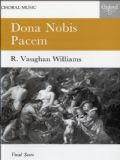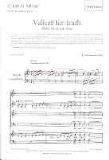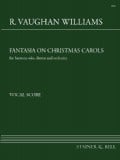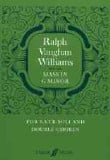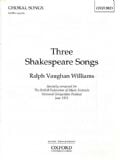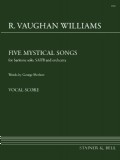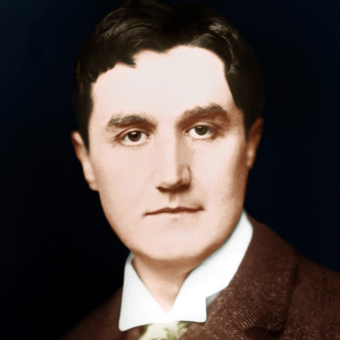
Ralph Vaughan Williams
Ralph Vaughan Williams established new nationalist style based on English folk traditions * Studied at Cambridge with Wood and at Royal College of Music with Parry and Stanford * In 1895 established lifelong friendship with Gustav Holst · Further studies with Bruch in Berlin (1897) and Ravel in Paris (1908) * Progressively rejected foreign Romantic influences in favour of inspiration from native material, including Elizabethan and Jacobean music and English folksongs, of which he collected over 800 * Personal voice emerged fully in 1909 with On Wenlock Edge * Works include 9 symphonies and 4 operas * Strong believer in music as vital part of everyday life * Active with amateur music-making, conducting, composing for choirs, brass bands and film * As a teacher, pupils included Gordon Jacob and Elizabeth Maconchy * Music often modal and contrapuntal, with delicate French orchestration
Works by Ralph Vaughan Williams include:
Songs of Travel (1901-04) for voice and piano or orchestra
On Wenlock Edge (1908-09) for tenor and piano, piano quintet or orchestra
Four Hymns (1914) for tenor, solo viola and strings
English Folksong Suite (1923) orchestrated by Gordon Jacob
"The reason those early musicians sang, played, invented and composed was simply and solely because they wanted to... When English musicians learn to do that - to write and play for the sake of the music and for the sake of nothing else, then I think that the music which is latent amongst us will come to the front." — Ralph Vaughan Williams
Bestselling Titles by Ralph Vaughan Williams
-
Publisher: Oxford University PressUsually despatched within 7-10 working days - Lead times may vary in the case of supplier shortages or delays$23.36
-
Publisher: Oxford University PressIn Stock: Usually despatched within 24-48 hours$3.78
-
Publisher: Stainer & BellSpecial Order: Usually despatched within 10-15 working days - Lead times may vary in the case of supplier shortages or delays$11.20
-
Publisher: Faber MusicUsually despatched within 7-10 working days - Lead times may vary in the case of supplier shortages or delays$8.95
-
Publisher: Oxford University PressIn Stock: Usually despatched within 24-48 hours$4.80
-
Publisher: Stainer & BellOn Order: Usually despatched within 5-8 working days - Lead times may vary in the case of supplier shortages or delays$12.74


